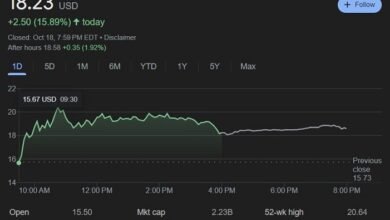
As a small business owner, managing your finances effectively is crucial to your success. One key aspect of this is book keeping expenses. Let’s dive into the basics of bookkeeping expenses and how to keep track of them efficiently.
Table of Contents
ToggleWhat are Bookkeeping Expenses?
Bookkeeping expenses are the costs incurred in managing your business’s financial records. This includes tracking income and expenses, managing invoices, and preparing financial statements. Proper bookkeeping ensures that your financial data is accurate and up-to-date, which is essential for making informed business decisions.
Types of Bookkeeping Expenses
1. Direct Costs
Direct costs are expenses directly related to producing goods or providing services. These include:
- Raw Materials: The cost of materials used to produce your products.
- Labor: Wages paid to employees involved in production.
- Manufacturing Supplies: Items used in the production process, such as tools or machinery.
2. Indirect Costs
Indirect costs are expenses not directly tied to production but necessary for running your business. These include:
- Rent: The cost of your business premises.
- Utilities: Electricity, water, and other utilities.
- Office Supplies: Paper, pens, and other office necessities.
3. Administrative Expenses
Administrative expenses are costs related to the overall management of your business. These include:
- Salaries: Wages paid to administrative staff.
- Professional Fees: Fees paid to accountants, lawyers, and consultants.
- Insurance: Business insurance premiums.
4. Marketing Expenses
Marketing expenses are costs associated with promoting your business. These include:
- Advertising: Costs for online ads, print ads, and other advertising channels.
- Promotional Materials: Brochures, business cards, and other promotional items.
- Website Maintenance: Costs for maintaining your business website.
How to Track Bookkeeping Expenses
1. Use Accounting Software
Investing in good accounting software can make tracking expenses much easier. Software like QuickBooks, Xero, or FreshBooks can help you record expenses, generate reports, and manage your finances efficiently.
2. Keep Receipts and Invoices
Always keep receipts and invoices for all business-related expenses. These documents serve as proof of your expenses and are essential for accurate record-keeping and tax purposes.
3. Categorize Expenses
Categorizing your expenses helps you understand where your money is going and identify areas where you can cut costs. Common categories include office supplies, travel, utilities, and marketing.
4. Set a Budget
Creating a budget helps you plan for future expenses and ensures you don’t overspend. Regularly compare your actual expenses against your budget to stay on track.
5. Review Financial Statements Regularly
Regularly reviewing your financial statements helps you monitor your business’s financial health. Look for trends, identify potential issues, and make informed decisions based on your financial data.
Benefits of Proper Bookkeeping
1. Improved Financial Management
Accurate bookkeeping provides a clear picture of your business’s financial health, helping you make better financial decisions.
2. Simplified Tax Preparation
Proper bookkeeping ensures you have all the necessary documentation for tax preparation, making the process smoother and less stressful.
3. Informed Decision-Making
Having up-to-date financial data allows you to make informed decisions about your business, such as when to invest in new equipment or hire additional staff.
4. Enhanced Business Planning
Accurate financial records help you create realistic business plans and set achievable goals for growth and expansion.
Conclusion
Effective bookkeeping is essential for the success of your business. By understanding the types of bookkeeping expenses, tracking them diligently, and using the right tools, you can ensure your financial records are accurate and up-to-date. This will help you make informed decisions, manage your finances effectively, and ultimately, grow your business.




